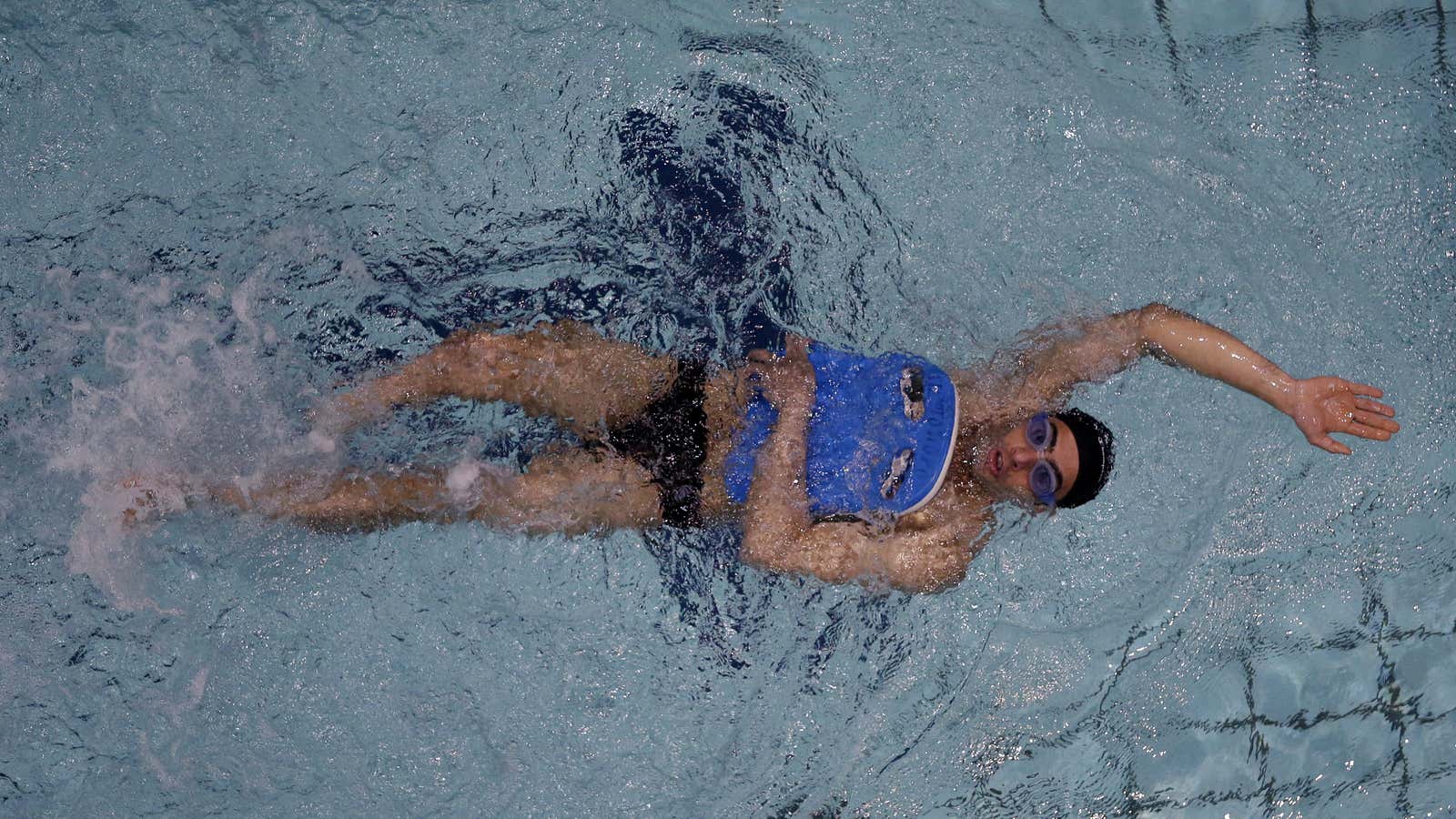In 2013, Ibrahim Al-Hussein couldn’t have imagined he was going to have a career in swimming. Growing up in Syria, he used to train in the Euphrates River. With his father as a coach, he and many of his 13 siblings performed well in national competitions.
The civil war cut his ambitions short. As he was rescuing a friend who’d been hit by a bomb in his hometown, he himself was hit by a rocket. Following the injury, the lower part of his right leg had to be amputated during an emergency surgery.
“I woke up twice during surgery and I saw everything,” Al Hussein said in an interview.
Looking for better medications and recovery options, he fled to Turkey, and was confined to home. It took him a year to teach himself to walk again, and board a rubber boat to Greece, where he now lives—and swims.
In Athens, Ibrahim started swimming again with a league of athletes with disabilities, finding in sport the perfect outlet for his pain. His current record is now a few seconds slower than it was before he lost his leg. “I have no problem not eating or not having a home, but you can’t take away my training,” he said.
Earlier this year he was chosen to carry the Olympic torch through a refugee camp in Athens. Shortly after, he was selected to participate in Rio’s Paralympics games, one of two athletes representing refugees at the event. The other, Shahrad Nasajpour, who is from Iran and living in the US under asylum protection, will compete in athletics.
“I thought my dream had gone when I lost my leg but now it is back for real. I can’t believe I am going to Rio,” he said in an interview. Indeed, Ibrahim, who works in a café to pay his bills, is scheduled to compete on Sept. 9 in the men’s 50 and 100 meter freestyle. “It’s impossible to describe the honor I feel,” he said.
His goal is clear: “I have one wish – gold!” he said, adding that he hopes to be a model for others struggling with injury. “There is nothing called injury.” he said. “It’s mental injury when you restrict yourself. Look forward, not to the past.”
